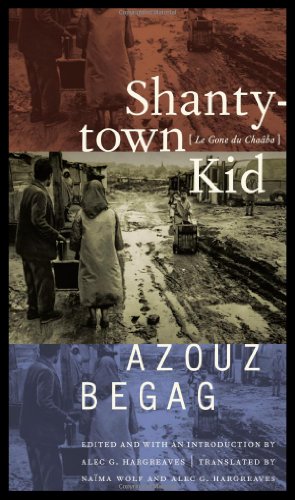Shantytown Kid
What a delightful little book this is. Azouz Begag, the author, is a novelist, researcher, and, recently, the minister for equal opportunities in Chirac’s cabinet. The son of illiterate immigrants from Algeria, Begag knows what is like to be Arab, poor, and part of a despised minority. Shantytown Kid is the English translation of the autobiographical account of his experiences that Begag wrote in French in the 1980s (Le gone du Chaâba). It narrates his early adolescence and his transition from contentment to academic excellence. It is a comic, heartwarming coming-of-age story.
The odds are against young Azouz. Le Chaâba, the shantytown where he lives, is a dismal collection of wooden shacks with communal toilets haunted by djnouns, evil spirits. The main attraction is the arrival of garbage trucks with “treasures” the kids fight over, risking “embankment disease”—probably tetanus. But Azouz wants more out of life. Obstinate and hard-working, he rises above cultural differences, suffering both the shunning of his Arab friends and the marginalization of the society at large. He struggles, at times ashamed of his origins, of his “frizzy hair.” What does it mean being an Arab and a Muslim in France? His answers make Shantytown Kid light, witty, and full of amusing twists. The translation, we are told, takes pains to reflect the linguistic mix of the original, which must be an absolute riot. In English, the text skips along, intermingling Algerian Arabic, Lyonnais slang, and the phonetic rendition of the heavily accented language of the immigrants. The narrative shifts from one vocabulary to the other, alternating linguistic registers, reflecting the kaleidoscopic world around Azouz. Until the last page, the story keeps the reader totally engaged, and, most of the time, smiling. Thank you, translators.










